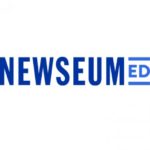Inspiring Civics lessons teach students about the history of civic action and how to get involved in a civic issue. In two sessions, students will be introduced to civic participation, understand
how it impacts their lives, and create strategies for engaging with civic issues.
Civic Action and Change (Lesson Plan and Powerpoint)
Students explore examples of civic action and change by looking at the efforts in four movements in the 20th century; women’s rights, disability awareness, Native American rights, and migrant worker rights. Through these examples, student will describe the process of civic action through the I AM chart (Inform, Act, Maintain).
Civic Participation in the Justice System: How Individuals Shape Major Cases
Your students will analyze the impact of historic cases and the role of civic participation in these cases. Students will also demonstrate their understanding of the basic elements of a trial through a mock trial proceeding.
Creating Effective Citizens/Social Studies in Action Library
Watch lesson plans in the video, “Creating Effective Citizens,” from the Social Studies in Action Library, that teach students how to become active and effective citizens. Students participate in role-play and simulations that model civic action, discuss controversial laws about gender discrimination and individual rights, explore what it means to be a global citizen within a democracy, and engage students in local and national issues.
Join the Barons!
King John has pushed your buttons and pulled your purse strings one too many times — will you join your baron brethren in the campaign for an agreement between monarch and landowners? And do you know the proper course of action? Make sure you’ve listened closely to our episode, the don your robes, dash out of your manor and find your surest footed steed — it’s time to make Magna Carta a reality. You can join the adventure here!
The 2015 Baltimore Riots: A Teachable Moment

The Newseum believes that improving civic education has the power to improve our schools, communities and our democracy. The Baltimore unrest can be an entry point in your conversation with students.
The Newseum has numerous resources to help teachers broach this topic in the classroom. Lesson plans, videos and activities guide students in how civil rights issues have been represented in the media over many decades. And how citizens, including young people, can develop a voice and use the freedoms of the First Amendment to effect change and inspire action.
The Constitution in Action: Who Shapes Foreign Policy?
History is the chronicle of choices made by actors/agents/protagonists in specific contexts. This simulation places students in the Early Republic and asks them to engage with a fundamental question of Constitutional interpretation faced at that time: Who controls foreign policy, Congress or the President? Students will explore this sweeping question with respect to Washington’s Neutrality Proclamation of 1793 and Jay’s Treaty.
Black History Month Lesson Plans on Nonviolence
The power of nonviolent actions and attitudes as a means to resist oppression and spur reforms is a recurring feature of democratic and democratizing societies. The School Violence Prevention Demonstration Program presents educators with lesson plans that explore the use of nonviolence in history, paying particular attention to the civil rights movement and African American history. Six lessons address: the 1963 Children’s March; the concept of nonviolence using primary sources and stories of participants in the civil rights movement; the power of nonviolence; the story of Rosa Parks; citizenship schools; how music can be used to achieve social and political change.